Ambassador who could not be "more Serb than Serbs"
Saturday, 15.09.2012.
23:04

Ambassador who could not be "more Serb than Serbs" On Tuesday (Sept. 11), Serbian Prime Minister Ivica Dacic officially bid farewell to Russia's ambassador in Belgrade Aleksandr Konuzin. The same day, President Tomislav Nikolic met with his Russian counterpart Vladimir Putin for the second time in three months, this time in Sochi. As Konuzin's mandate is running out, it seems that relations between Belgrade and Moscow are on a level more cordial and with more prospects than in a long time: after Gazprom acquired NIS, the South Stream pipeline construction is due to start in Serbia, there is talk of Russian investments in railway infrastructure, the defense industry, energy, along with a loan for Serbia's shaken state budget... Serbia's entire Kosovo policy of not recognizing the unilateral independence declaration is based on Russia's support - and for this reason many Serbs see Russia as their ally and brother. At the same time, Serbia's priority is to become a full-fledged EU member. The Russian ambassador sees no contradiction in this - however, Serbia's possible NATO membership is an altogether different affair. Vreme: There have been statements from the Russian side that Russia is not opposed to Serbia joining the EU, but there have also been your statements that the Russo-Serbian trade and economic cooperation would not longer be valid should Serbia become a part of the "Brussels system". What is the view from Moscow regarding Serbia's EU membership? Konuzin: What matters the most to Russia is that the friendly Serbia should be a strong and prosperous state. With this goal in mind, we endeavor to develop harmonious, mutually beneficial relations. Our starting point is that the more friends your country has, the more versatile its ties, better off it is. And with that, better off Russia is. In other words, if it is favorable for Serbia to join the EU, that cannot be against Russia's interest. It goes without saying that we are counting on it that the cooperation with the European Union would not be to the detriment of the Russo-Serb relations. Serbia can fully enjoy the benefits both of its cooperation with Russia and with the EU. And the best version is for all three factors to have close cooperation with equal benefit for all. It is precisely this configuration that I stood in favor of in every possible manner during the years that I spent in Belgrade. There are conceptual ideas regarding this. I wish to see those ideas turn into concrete projects of the next generation. Q: You did not hide your liking of the Serb Progressive Party. The DSS also has a good relationship with United Russia. In June 2009, you said that in the Serbian government, there were "opponents of the development of the Russo-Serb ties". Do you think the new government will lead a different foreign policy that will bring Serbia closer to Russia? A: I tried to maintain good relations with all parties that have a friendly inclination toward Russia. Such parties make up a huge majority here. Of course, I realized that some parties were ready for deeper cooperation; they forged connections with Russian organizations, and advocated positions that, as I see it, suited the national interest of Serbs to a greater degree. In turn, those parties had an appropriate treatment from me. However, I never violated the very concrete rules of a diplomat's behavior, which, among other things, are regulated by international law. As for the new government, judging by the statements coming from the members of the ruling coalition, and the first moves made by the Serbian authorities, it can be counted on that our two countries truly will become closer, and that they will enter a qualitatively new stage of bilateral relations. Q: There is often discussion and speculation about "Russia's strategic interests in the Balkans". Do these interests exist, and if so, what are they, and what place does Serbia have in the Russian Balkans policy? A: Russia's interests in the Balkans are dictated by history and geography. Brotherly Slavic peoples live here, natural paths of communication with Europe, southern countries pass through here. Russia has striven toward this region for centuries. Serbia was, and remains, one of our key partners in the Balkans. Q: Would Serbia's possible NATO membership go against the Russian interest in the Balkans? A: Absolutely clearly, yes. The alliance has been, with increasing frequency, stepping outside its declared goals, it has been violating sovereignty of countries, international law. The most vivid example is NATO's aggression against Serbia in 1999. The enlargement of this military-political bloc does not correspond with modern challenges and threats, it strengthens a lack of unified and equal security in Europe. Q: An important segment of the Serbo-Russian relations is the energy package, and within in , the international project South Stream. There have been announcements of the start of its construction. In the so-called blizhneye zarubezhye (Near Abroad), especially in Ukraine, there is visible anger and opposition to the project. Will its development influence the dynamics of the so-called Gas War between Russia and Ukraine? A: The realization of the South Stream project will be carried out in line with existing international contracts, and the technical plans that are being made. Business negotiations with other states, that are not taking part in this project, are taking place in line with their commercial, geographical, and historic logic. Q: For 40 years now Russia's Gazprom has cooperated with Italy's ENI, and that cooperation represents the backbone of the South Stream project. How does Russia view the intensified economic cooperation between Italy and Serbia, which also has a long history? In that context, do you predict that the Russian market will open up for import of Fiat's cars manufactured in Kragujevac, based on the Free Trade Agreement (between Serbia and Russia)? A: As I said: what's good for Serbia is good for Russia. We wish much success to your country in the mutually beneficial partnership with our common Italian friends. And if we could also manage to achieve a joint, trilateral project, that would be a fantastic example of a modern technology of cooperation. For now, I have not learned that there have been negotiations about the import of Fiats made in Serbia, in line with our Free Trade Agreement. Q: Are the reports that Russian companies are interested in Zelezara (Steel Mill) Smederevo true? A: There is interest. Currently there is an ongoing technical study of the project. Q: President Putin recently approved funds to be set aside in order to repair the Russian Necropolis in Belgrade, where many "White (Army) Russians", who found refuge in Serbia after the October Revolution, lay buried. How is that project coming along? What significance does that segment of the cultural cooperation have for the Serbo-Russian relations? A: The project is being financed from non-governmental funds. For us, it holds great symbolic and historical importance. Many distinguished Russians have been buried here. There are hundreds of generals, officers, privates among them, who went to battle during the First World War, among them those who defended Belgrade in 1914 and 1915. Many Russian cultural, scientific, religious figures have also been buried in that cemetery. The project is being implemented. We expect that this fall, the first of the four restored plots will be consecrated. To us, the Russian Necropolis also represents a monument of the joint cultural and historical heritage of Russians and Serbs. The Russians, buried in that cemetery, made an important contribution to Serbia's development between the two world wars. Suffice to say that edifices built according to designs of Russian architects represent ornaments to the cityscapes of Belgrade and many other towns in Serbia. Q: During (former) Russian President (Dmitry) Medvedev's visit to Belgrade, a strong emphasis was put on our joint battle against fascism. Is that historical era being pushed out of the memory of new generations? A: I am very pleased that during my stay in Serbia the tradition has been restored for this country to mark, on the state level, Second World War Victory Day and the anniversary of the liberation of Belgrade from the fascist occupation. Serbs should not forget that Yugoslavia was a victorious country in the most cruel, most inhumane war. I am also glad that ahead of the 100th anniversary of the break-out of the First world War, a new tradition is being established, and on the highest level - remembrance of the fallen Serbs and Russians, all those who lost their lives, caught in the grindstone of the Great War. I believe that the subject of the dedicated heroism of the Serb nation, of their historical feats must become one factor in raising the patriotic awareness, which is something the new Serbian authorities are now talking about. Q: You have become famous in Serbia for your question, "Are there any Serbs here?", uttered during a panel on global security challenges, held on September 15 of last year, that was opened by then President Boris Tadic. This was also interpreted as a strong criticism of Tadic's policy. What is it, foreign policy-wise, that you hold against the previous government? A: I have no directives, nor any intention to object to the previous, or the current government. My task is to monitor the situation in the country I'm posted in, among other things - its foreign policy, and report back to Moscow, give my suggestions regarding the type of cooperation that would be in line with the country's position. Criticism and objections aimed at the government - that's the task of the citizens who brought it to power. As regards the Belgrade Security Forum, which was organized by Serbian NGOs financed from abroad, accusations were leveled at Russia for being the greatest global threat to international security. And this was happening at a time when NATO members were openly preparing to, by force, take control of the checkpoints on the administrative line along Kosovo and central Serbia, in order to cut off this province from the rest of the Serbian territory. I was aware that those Serbs who were in favor of preserving their country's territorial integrity also tried to attend this forum, those who were in favor of respecting its sovereignty, in favor of it not being treated as a second-rate country. They were not enabled to attend. Q: How do you comment on appraisals coming from some political parties and organizations that Serbia is "turning into a Russian province"? A: In case somebody really thinks that - and it seems to me this is about small-time provocateurs - then that's a bad and ugly appraisal that has nothing to do with real life, something that anyone who pretends to assume a political role should not be proud of. I don't even wish to comment on that. Nonsense! Q: Do you consider it was the right move when in September 2010, Serbia succumbed to the demands coming from Brussels and Washington and gave up on its original draft Kosovo resolution at the (UN) General Assembly, the essence of which had been that "unilateral secession cannot be an acceptable manner in solving territorial disputes"? Did the Serbian government consult you before its decision to harmonize its resolution with the demands of the EU? A: We cannot be more Serb than Serbs. For that reason, when under outside pressure - which, by the way, has not relented to this day - Belgrade changed its previous position completely and asked us to support its new stance, there was nothing left for us to do but to satisfy that plea. Although, for us, from this point in time, I can tell you, that was completely unexpected. Russia - Serbia's sole strategic partner - was faced with a fait accompli! That was not in line with relations of a strategic partnership that we strove to build. Q: You have been one of the most publicly prominent ambassadors in Serbia in the past several years. In the end, what is your message to the citizens of Serbia? A: It seems to me that during the years that I spent in your country, I learned about the character and mentality of its people fairly well - they are bright representatives of the Slavic tribes. I would like to wish to Serbs that they recapture the faith in their own strength, that they find inspiration in the examples set by their heroes and their history, that they strengthen their national unity around the idea of building a new Serbia - that they guard every inch of their Serb land, which was safeguarded and left as a legacy by their ancestors. Russia will always be your closest friend. Aleksandr Konuzin (Tanjug, file) By withdrawing its original draft resolution on Kosovo at the UN General Assembly in September 2010 - the essence of which had been that "unilateral secession cannot be an acceptable manner in solving territorial disputes", Serbia forced Russia to accept a fait accompli. This completely blindsided Serbia's "sole strategic partner". Russia is in favor of cooperation between Serbia and the EU, but is against Serbia's NATO membership. Judging by the statements from the new ruling coalition, and the first moves made by Serbia's leadership, Serbia and Russia really will become closer, and enter a qualitatively new stage of their bilateral relations. Andrej Ivanji, Vreme "If it is favorable for Serbia to join the EU, that cannot be against Russia's interest. It goes without saying that we are counting on it that the cooperation with the European Union would not be to the detriment of the Russo-Serb relations."
Ambassador who could not be "more Serb than Serbs"
On Tuesday (Sept. 11), Serbian Prime Minister Ivica Dačić officially bid farewell to Russia's ambassador in Belgrade Aleksandr Konuzin. The same day, President Tomislav Nikolić met with his Russian counterpart Vladimir Putin for the second time in three months, this time in Sochi. As Konuzin's mandate is running out, it seems that relations between Belgrade and Moscow are on a level more cordial and with more prospects than in a long time: after Gazprom acquired NIS, the South Stream pipeline construction is due to start in Serbia, there is talk of Russian investments in railway infrastructure, the defense industry, energy, along with a loan for Serbia's shaken state budget... Serbia's entire Kosovo policy of not recognizing the unilateral independence declaration is based on Russia's support - and for this reason many Serbs see Russia as their ally and brother. At the same time, Serbia's priority is to become a full-fledged EU member. The Russian ambassador sees no contradiction in this - however, Serbia's possible NATO membership is an altogether different affair.Vreme: There have been statements from the Russian side that Russia is not opposed to Serbia joining the EU, but there have also been your statements that the Russo-Serbian trade and economic cooperation would not longer be valid should Serbia become a part of the "Brussels system". What is the view from Moscow regarding Serbia's EU membership?
Konuzin: What matters the most to Russia is that the friendly Serbia should be a strong and prosperous state. With this goal in mind, we endeavor to develop harmonious, mutually beneficial relations. Our starting point is that the more friends your country has, the more versatile its ties, better off it is. And with that, better off Russia is. In other words, if it is favorable for Serbia to join the EU, that cannot be against Russia's interest. It goes without saying that we are counting on it that the cooperation with the European Union would not be to the detriment of the Russo-Serb relations. Serbia can fully enjoy the benefits both of its cooperation with Russia and with the EU. And the best version is for all three factors to have close cooperation with equal benefit for all. It is precisely this configuration that I stood in favor of in every possible manner during the years that I spent in Belgrade. There are conceptual ideas regarding this. I wish to see those ideas turn into concrete projects of the next generation.
Q: You did not hide your liking of the Serb Progressive Party. The DSS also has a good relationship with United Russia. In June 2009, you said that in the Serbian government, there were "opponents of the development of the Russo-Serb ties". Do you think the new government will lead a different foreign policy that will bring Serbia closer to Russia?
A: I tried to maintain good relations with all parties that have a friendly inclination toward Russia. Such parties make up a huge majority here. Of course, I realized that some parties were ready for deeper cooperation; they forged connections with Russian organizations, and advocated positions that, as I see it, suited the national interest of Serbs to a greater degree. In turn, those parties had an appropriate treatment from me. However, I never violated the very concrete rules of a diplomat's behavior, which, among other things, are regulated by international law.
As for the new government, judging by the statements coming from the members of the ruling coalition, and the first moves made by the Serbian authorities, it can be counted on that our two countries truly will become closer, and that they will enter a qualitatively new stage of bilateral relations.
Q: There is often discussion and speculation about "Russia's strategic interests in the Balkans". Do these interests exist, and if so, what are they, and what place does Serbia have in the Russian Balkans policy?
A: Russia's interests in the Balkans are dictated by history and geography. Brotherly Slavic peoples live here, natural paths of communication with Europe, southern countries pass through here. Russia has striven toward this region for centuries. Serbia was, and remains, one of our key partners in the Balkans.
Q: Would Serbia's possible NATO membership go against the Russian interest in the Balkans?
A: Absolutely clearly, yes. The alliance has been, with increasing frequency, stepping outside its declared goals, it has been violating sovereignty of countries, international law. The most vivid example is NATO's aggression against Serbia in 1999. The enlargement of this military-political bloc does not correspond with modern challenges and threats, it strengthens a lack of unified and equal security in Europe.
Q: An important segment of the Serbo-Russian relations is the energy package, and within in , the international project South Stream. There have been announcements of the start of its construction. In the so-called blizhneye zarubezhye (Near Abroad), especially in Ukraine, there is visible anger and opposition to the project. Will its development influence the dynamics of the so-called Gas War between Russia and Ukraine?
A: The realization of the South Stream project will be carried out in line with existing international contracts, and the technical plans that are being made. Business negotiations with other states, that are not taking part in this project, are taking place in line with their commercial, geographical, and historic logic.
Q: For 40 years now Russia's Gazprom has cooperated with Italy's ENI, and that cooperation represents the backbone of the South Stream project. How does Russia view the intensified economic cooperation between Italy and Serbia, which also has a long history? In that context, do you predict that the Russian market will open up for import of Fiat's cars manufactured in Kragujevac, based on the Free Trade Agreement (between Serbia and Russia)?
A: As I said: what's good for Serbia is good for Russia. We wish much success to your country in the mutually beneficial partnership with our common Italian friends. And if we could also manage to achieve a joint, trilateral project, that would be a fantastic example of a modern technology of cooperation. For now, I have not learned that there have been negotiations about the import of Fiats made in Serbia, in line with our Free Trade Agreement.
Q: Are the reports that Russian companies are interested in Železara (Steel Mill) Smederevo true?
A: There is interest. Currently there is an ongoing technical study of the project.
Q: President Putin recently approved funds to be set aside in order to repair the Russian Necropolis in Belgrade, where many "White (Army) Russians", who found refuge in Serbia after the October Revolution, lay buried. How is that project coming along? What significance does that segment of the cultural cooperation have for the Serbo-Russian relations?
A: The project is being financed from non-governmental funds. For us, it holds great symbolic and historical importance. Many distinguished Russians have been buried here. There are hundreds of generals, officers, privates among them, who went to battle during the First World War, among them those who defended Belgrade in 1914 and 1915. Many Russian cultural, scientific, religious figures have also been buried in that cemetery. The project is being implemented. We expect that this fall, the first of the four restored plots will be consecrated. To us, the Russian Necropolis also represents a monument of the joint cultural and historical heritage of Russians and Serbs. The Russians, buried in that cemetery, made an important contribution to Serbia's development between the two world wars. Suffice to say that edifices built according to designs of Russian architects represent ornaments to the cityscapes of Belgrade and many other towns in Serbia.
Q: During (former) Russian President (Dmitry) Medvedev's visit to Belgrade, a strong emphasis was put on our joint battle against fascism. Is that historical era being pushed out of the memory of new generations?
A: I am very pleased that during my stay in Serbia the tradition has been restored for this country to mark, on the state level, Second World War Victory Day and the anniversary of the liberation of Belgrade from the fascist occupation. Serbs should not forget that Yugoslavia was a victorious country in the most cruel, most inhumane war. I am also glad that ahead of the 100th anniversary of the break-out of the First world War, a new tradition is being established, and on the highest level - remembrance of the fallen Serbs and Russians, all those who lost their lives, caught in the grindstone of the Great War. I believe that the subject of the dedicated heroism of the Serb nation, of their historical feats must become one factor in raising the patriotic awareness, which is something the new Serbian authorities are now talking about.
Q: You have become famous in Serbia for your question, "Are there any Serbs here?", uttered during a panel on global security challenges, held on September 15 of last year, that was opened by then President Boris Tadić. This was also interpreted as a strong criticism of Tadić's policy. What is it, foreign policy-wise, that you hold against the previous government?
A: I have no directives, nor any intention to object to the previous, or the current government. My task is to monitor the situation in the country I'm posted in, among other things - its foreign policy, and report back to Moscow, give my suggestions regarding the type of cooperation that would be in line with the country's position. Criticism and objections aimed at the government - that's the task of the citizens who brought it to power.
As regards the Belgrade Security Forum, which was organized by Serbian NGOs financed from abroad, accusations were leveled at Russia for being the greatest global threat to international security. And this was happening at a time when NATO members were openly preparing to, by force, take control of the checkpoints on the administrative line along Kosovo and central Serbia, in order to cut off this province from the rest of the Serbian territory. I was aware that those Serbs who were in favor of preserving their country's territorial integrity also tried to attend this forum, those who were in favor of respecting its sovereignty, in favor of it not being treated as a second-rate country. They were not enabled to attend.
Q: How do you comment on appraisals coming from some political parties and organizations that Serbia is "turning into a Russian province"?
A: In case somebody really thinks that - and it seems to me this is about small-time provocateurs - then that's a bad and ugly appraisal that has nothing to do with real life, something that anyone who pretends to assume a political role should not be proud of. I don't even wish to comment on that. Nonsense!
Q: Do you consider it was the right move when in September 2010, Serbia succumbed to the demands coming from Brussels and Washington and gave up on its original draft Kosovo resolution at the (UN) General Assembly, the essence of which had been that "unilateral secession cannot be an acceptable manner in solving territorial disputes"? Did the Serbian government consult you before its decision to harmonize its resolution with the demands of the EU?
A: We cannot be more Serb than Serbs. For that reason, when under outside pressure - which, by the way, has not relented to this day - Belgrade changed its previous position completely and asked us to support its new stance, there was nothing left for us to do but to satisfy that plea. Although, for us, from this point in time, I can tell you, that was completely unexpected. Russia - Serbia's sole strategic partner - was faced with a fait accompli! That was not in line with relations of a strategic partnership that we strove to build.
Q: You have been one of the most publicly prominent ambassadors in Serbia in the past several years. In the end, what is your message to the citizens of Serbia?
A: It seems to me that during the years that I spent in your country, I learned about the character and mentality of its people fairly well - they are bright representatives of the Slavic tribes. I would like to wish to Serbs that they recapture the faith in their own strength, that they find inspiration in the examples set by their heroes and their history, that they strengthen their national unity around the idea of building a new Serbia - that they guard every inch of their Serb land, which was safeguarded and left as a legacy by their ancestors. Russia will always be your closest friend.










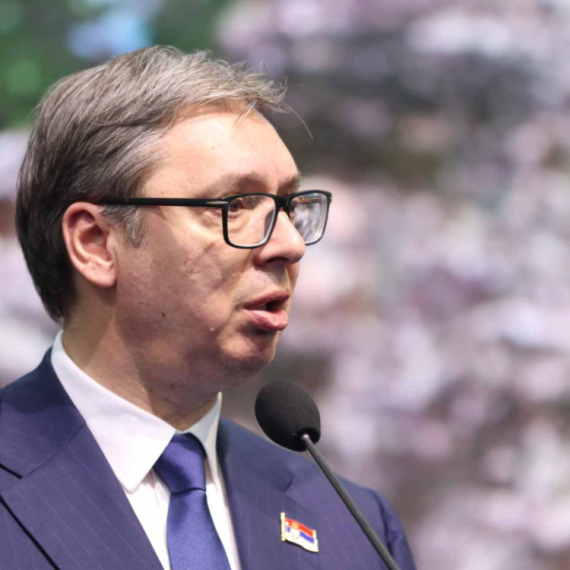

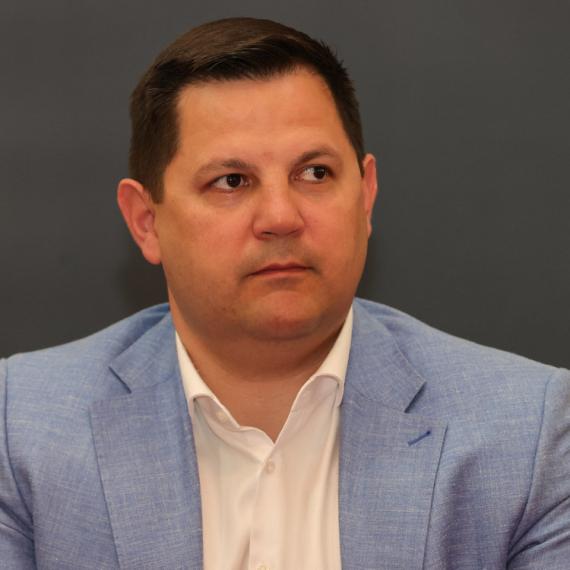
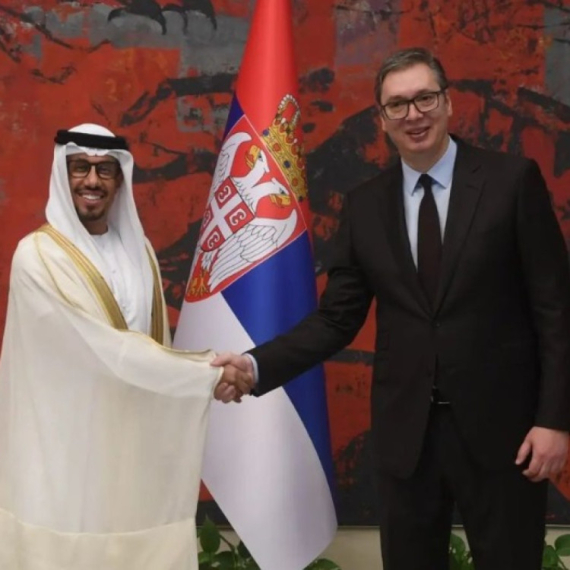
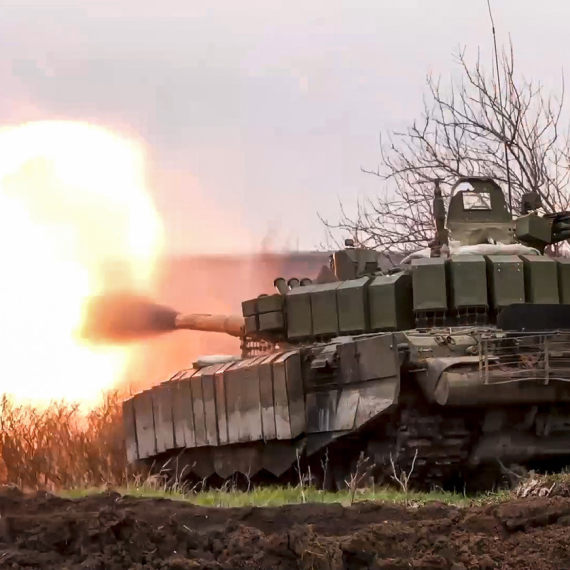
















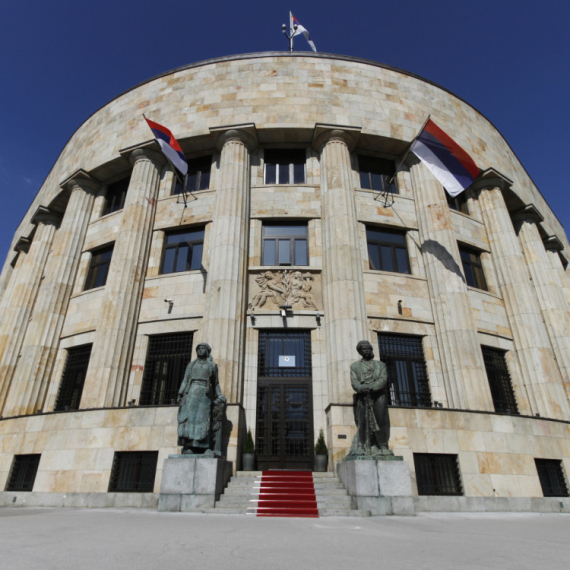

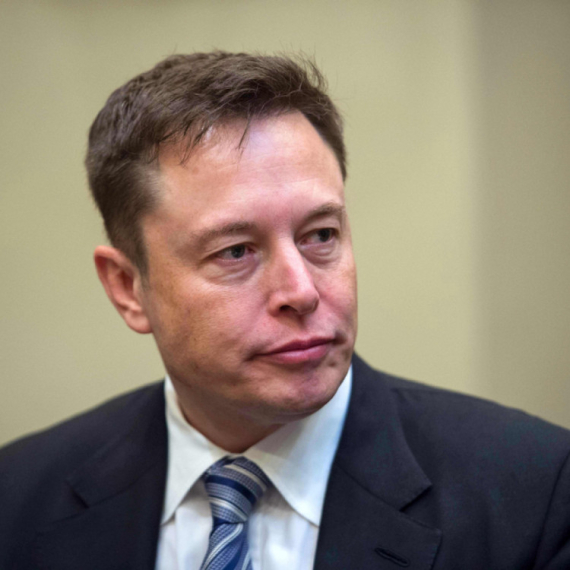




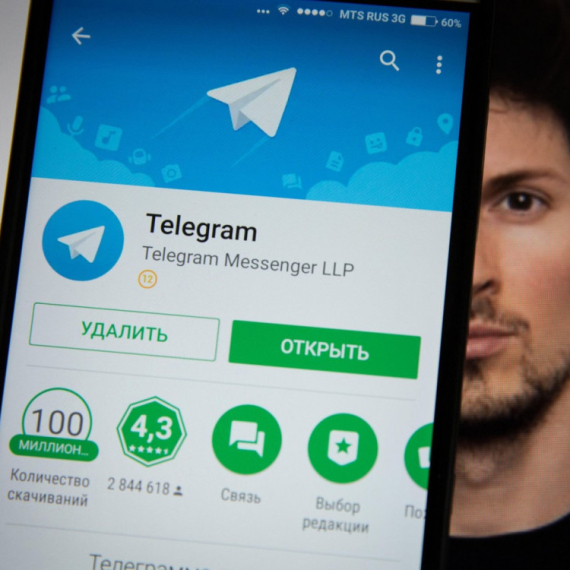
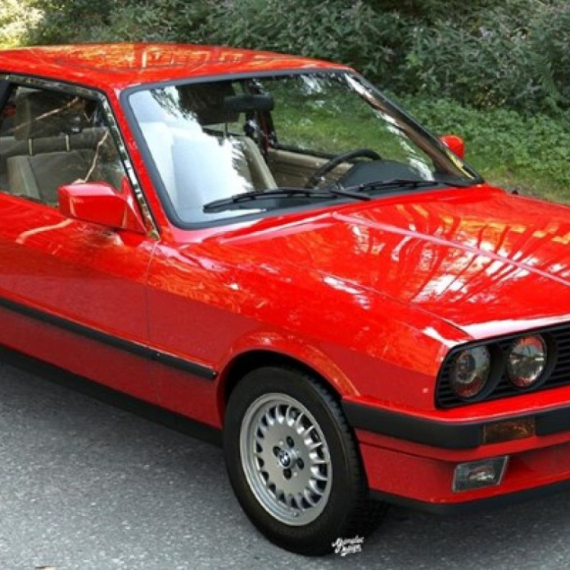


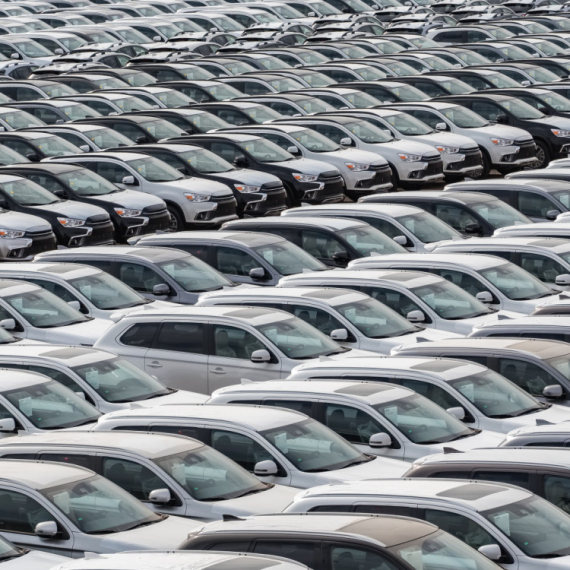


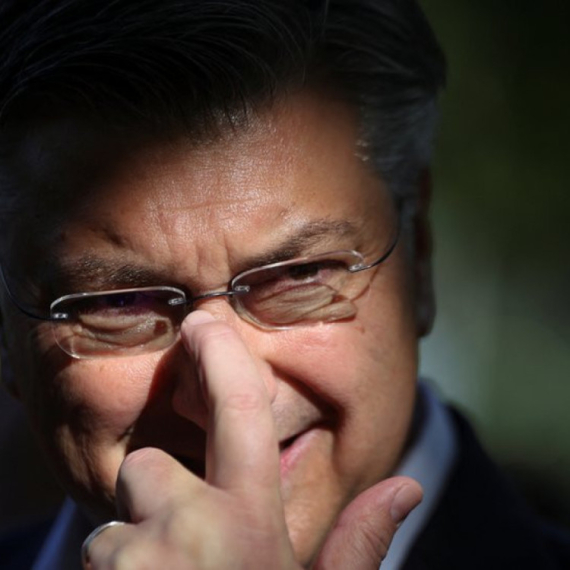
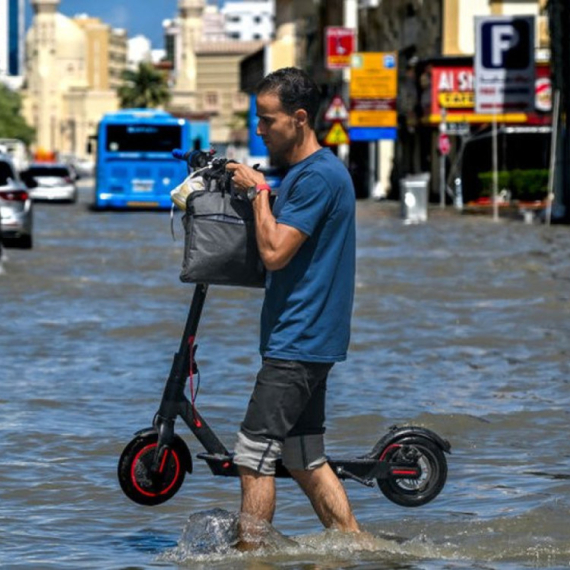
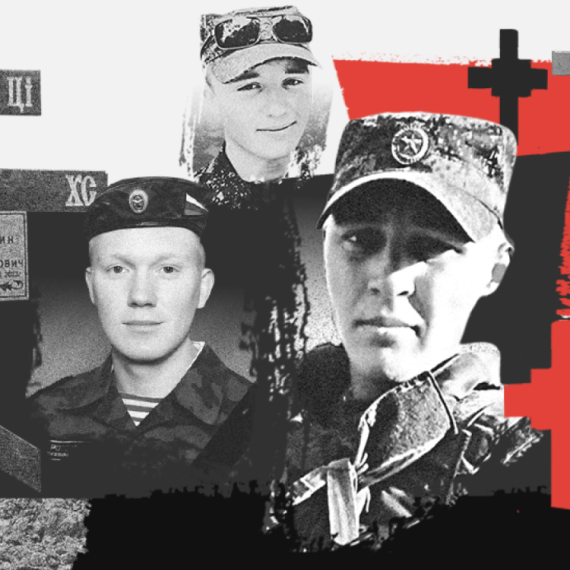
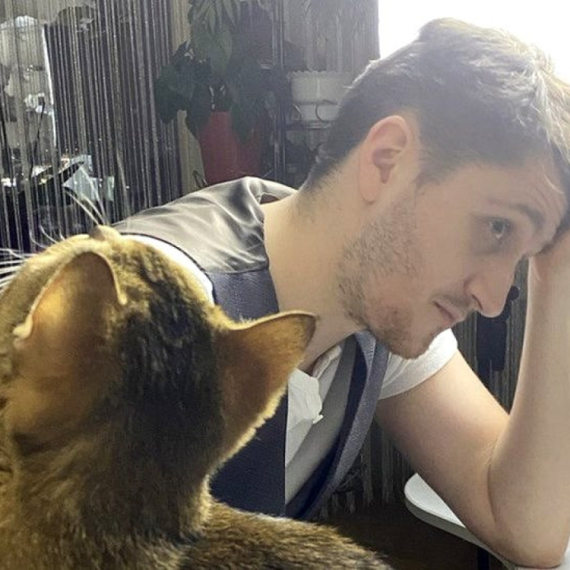

Komentari 6
Pogledaj komentare